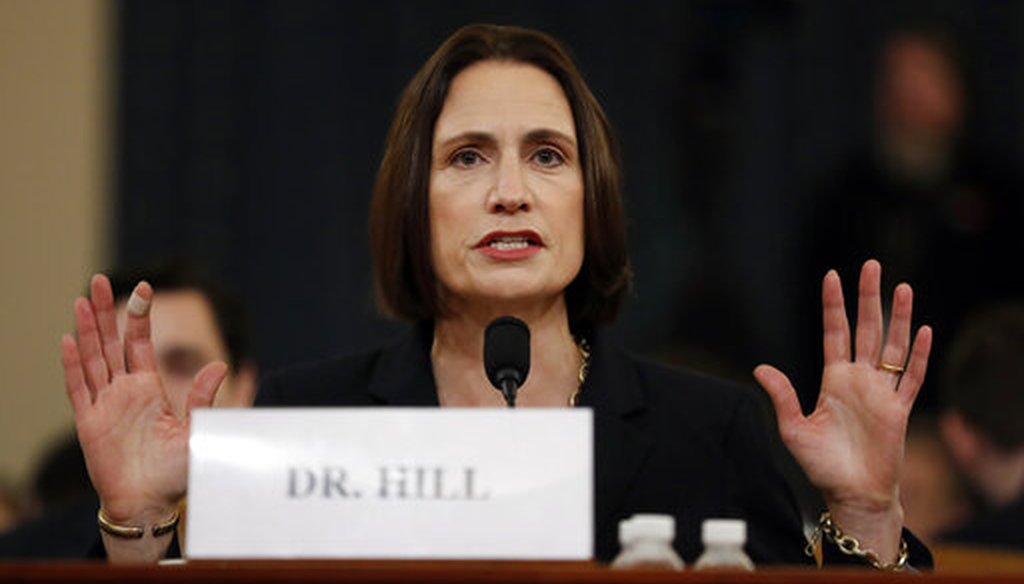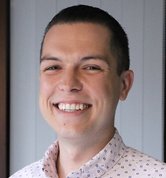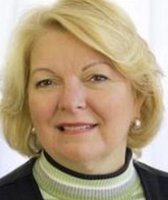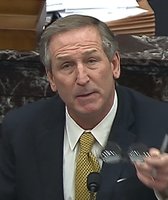Get PolitiFact in your inbox.

Former White House national security aide Fiona Hill testifies on Nov. 21, 2019. (AP)
Fiona Hill used her testimony in the House impeachment hearings to heap contempt on conspiracy theories and those who spread them, specifically the incorrect notion that Ukraine meddled in the 2016 U.S. election.
Hill served as the National Security Council senior director for Europe and Russia, recently leaving the post on July 19.
Hill took aim not only at supporters of President Donald Trump, but also directly at Republican members of the committee where she was testifying.
"Based on questions and statements I have heard, some of you on this committee appear to believe that Russia and its security services did not conduct a campaign against our country — and that perhaps, somehow, for some reason, Ukraine did," Hill said in her opening statement. "This is a fictional narrative that has been perpetrated and propagated by the Russian security services themselves."
Hill was echoing a focus of Special Counsel Robert Mueller. When Mueller spoke at the Justice Department following the completion of his report, he said, "I will close by reiterating the central allegation of our indictments — that there were multiple, systematic efforts to interfere in our election. That allegation deserves the attention of every American."
Here, we’ll recap what Hill said about "false narratives" and then provide summaries of the persistent conspiracy theories that have been debunked.
In her opening statement, Hill recalled her experience growing up as the child of a coal miner and a midwife in northern England. Her parents were never able to immigrate to America, but Hill used education to see the wider world, studying in Russia and at Harvard.
She joined the National Intelligence Council, an office that produces reports for the intelligence community, in 2006, focusing on Russia and Eurasia. She joined the Brookings Institution, a centrist to left-of-center think tank, in 2009. While there, she co-authored the book "Mr. Putin: Operative in the Kremlin" in 2013.
During the Trump administration, Hill served as a top National Security Council expert on Russia and Europe, supervising previous impeachment witness Lt. Col. Alexander Vindman. She left her post in the summer of 2019 and was succeeded in that post by another impeachment witness, Tim Morrison, before he resigned the NSC post in October.
Hill left her position "to spend more time with her husband and 12-year-old daughter and her mother, who is ill," the New York Times reported.
Hill was brought aboard at the National Security Council early in the Trump administration, based on her expertise on Russia. She leaned on that expertise in her opening statement.
Former National Security Council official Fiona Hill testifies before the House Intelligence Committee on Nov. 21, 2019.
She said that, "based on questions and statements I have heard, some of you on this committee appear to believe that Russia and its security services did not conduct a campaign against our country—and that perhaps, somehow, for some reason, Ukraine did. This is a fictional narrative that has been perpetrated and propagated by the Russian security services themselves.
"The unfortunate truth is that Russia was the foreign power that systematically attacked our democratic institutions in 2016. This is the public conclusion of our intelligence agencies, confirmed in bipartisan Congressional reports. It is beyond dispute, even if some of the underlying details must remain classified.
"The impact of the successful 2016 Russian campaign remains evident today. Our nation is being torn apart. Truth is questioned. Our highly professional and expert career foreign service is being undermined. U.S. support for Ukraine — which continues to face armed Russian aggression — has been politicized. The Russian government’s goal is to weaken our country — to diminish America’s global role and to neutralize a perceived U.S. threat to Russian interests. President Putin and the Russian security services aim to counter U.S. foreign policy objectives in Europe, including in Ukraine, where Moscow wishes to reassert political and economic dominance.
"I say this not as an alarmist, but as a realist. I do not think long-term conflict with Russia is either desirable or inevitable. I continue to believe that we need to seek ways of stabilizing our relationship with Moscow even as we counter their efforts to harm us. Right now, Russia’s security services and their proxies have geared up to repeat their interference in the 2020 election. We are running out of time to stop them. In the course of this investigation, I would ask that you please not promote politically driven falsehoods that so clearly advance Russian interests.
"As Republicans and Democrats have agreed for decades, Ukraine is a valued partner of the United States, and it plays an important role in our national security. And as I told this Committee last month, I refuse to be part of an effort to legitimize an alternate narrative that the Ukrainian government is a U.S. adversary, and that Ukraine — not Russia — attacked us in 2016.
"These fictions are harmful even if they are deployed for purely domestic political purposes. President Putin and the Russian security services operate like a super PAC. They deploy millions of dollars to weaponize our own political opposition research and false narratives. When we are consumed by partisan rancor, we cannot combat these external forces as they seek to divide us against each other, degrade our institutions, and destroy the faith of the American people in our democracy.
"I respect the work that this Congress does in carrying out its constitutional responsibilities, including in this inquiry, and I am here to help you to the best of my ability. If the President, or anyone else, impedes or subverts the national security of the United States in order to further domestic political or personal interests, that is more than worthy of your attention. But we must not let domestic politics stop us from defending ourselves against the foreign powers who truly wish us harm."
So, what are some of the "false narratives" that have been swirling around Ukraine in recent months? One conspiracy theory often cited by Trump’s strongest allies is one that suggests that 2016 Democratic presidential nominee Hillary Clinton’s missing emails somehow wound up in Ukraine.
The conspiracy theory claims the cybersecurity firm Crowdstrike hid a server of Clinton’s emails from the intelligence community’s investigation — and that Ukraine somehow controlled Crowdstrike.
We found no evidence that Crowdstrike ever worked on issues around Clinton’s private email server. Crowdstrike was involved in investigating the hack of the Democratic National Committee, which is altogether different from the Clinton emails.
And while Trump in 2017 told the Associated Press that a "very rich Ukrainian" owned the company, the firm is actually owned by Crowdstrike Holdings, Inc., which is based in Sunnyvale, Calif. The company was co-founded by CEO George Kurtz, CTO Dmitri Alperovitch and Gregg Marston (now retired) in 2011. Conspiracists claim Alperovitch is Ukrainian, when in reality he’s an American citizen who was born in Russia.
RELATED FACT-CHECK: "Trump mentioned the ‘Crowdstrike’ conspiracy during his call with Ukraine. Here’s what that means"
These conspiracies have roots in some fringe beliefs that Ukraine coordinated the DNC hack to frame the Russians. That conspiracy grew on internet sites like Reddit and 4chan, and has slowly trickled into the mainstream over the past few years. It’s been amplified by conservative and Russian media outlets, social media and even the criminal trial of Roger Stone, a former Trump adviser.
But the theory is bunk. The U.S. intelligence community has reaffirmed the role that Russia played in meddling in the 2016 election, as outlined in former special prosecutor Robert Mueller’s report — particularly when it came to the DNC hack.
In October 2019, Trump’s lawyer, Rudy Giuliani, said on ABC’s "This Week" that "there is a load of evidence that the Ukrainians created false information, that they were asked by the Obama White House to do it in January of 2016."
This is unproven. We found no evidence showing that the Obama administration asked the Ukrainians to produce false information in 2016.
Biden met with former Ukraine President Petro Poroshenko on Jan. 20, 2016, to discuss the importance of moving forward with Ukraine’s anti-corruption agenda, according to a two-sentence summary of the meeting.
There was another meeting that month in Washington between Ukrainian investigators and American officials to discuss coordinating their anti-corruption efforts, according to an April 2019 opinion article in The Hill by John Solomon. (The newspaper has since announced a review of his work.) But there’s no evidence that the Americans asked for false information during that meeting.
RELATED FACT-CHECK: "The inaccurate or unproven things Rudy Giuliani said about Ukraine on 'This Week"
Hunter Biden held a directorship with a natural gas company called Burisma Holdings beginning in the spring of 2014. Biden’s Burisma directorship attracted attention because Burisma was owned by Mykola Zlochevsky, a minister under Russia-friendly President Viktor F. Yanukovych, who subsequently went into exile after a popular revolution. After Yanukovych was ousted, Zlochevsky faced a variety of corruption-related investigations involving his business.
In 2015, Ukraine’s newly appointed prosecutor general Viktor Shokin inherited some of the investigations into Zlochevsky and his company. (Zlochevsky and the company have denied the allegations.)
The theory argued by Trump allies is that then-Vice President Joe Biden was protecting his son by seeking the firing of Ukrainian prosecutor Viktor Shokin.
There’s no question that Joe Biden did seek Shokin’s ouster. During an event sponsored by the Council on Foreign Relations on Jan. 23, 2018, Biden proudly recounted a threat he made to withhold U.S. aid unless Shokin was sacked. Biden said the incumbent prosecutor was failing to aggressively pursue allegations of corruption in Ukraine.
But Biden was hardly alone in calling for Shokin’s ouster. That was the wider U.S. government position, and Western leaders and institutions were largely united in seeking Shokin’s removal, arguing that he was not pursuing corruption cases aggressively.
For instance, in early 2016, International Monetary Fund chief Christine Lagarde said that "it’s hard to see how the I.M.F.-supported program can continue" unless corruption prosecutions accelerate. Shokin’s ouster came in March 2016, when he was stripped of his position by a wide margin in the legislature.
Meanwhile, it’s far from clear that the ouster of Shokin would have made any difference in Hunter Biden’s fate. Vitaliy Kasko, who had been Shokin’s deputy overseeing international cooperation, produced documents to Bloomberg that under Shokin, the investigation into Burisma had been dormant. Kasko resigned in February 2016 citing corruption in the office.
Anders Åslund, a resident senior fellow at the Atlantic Council, a think tank in Washington, agreed that criticism of Shokin was widespread
Shokin "failed to prosecute anybody of significance, protecting both the Yanukovych circle and the Poroshenko group," Åslund told PolitiFact in May.
RELATED FACT-CHECK: "Trump’s Ukraine call, a whistleblower and the Bidens: What we know, what we don’t"
Our Sources
The Hill, "Read Fiona Hill’s opening statement," Nov. 21, 2019
U.S. Department of Justice, "Special Counsel Robert S. Mueller III Makes Statement on Investigation into Russian Interference in the 2016 Presidential Election," May 29, 2019
New York Times, "Fiona Hill Viewed Serving Trump as Risky. Now She’s an Impeachment Witness," Nov. 21, 2019
Washington Post, "Who is Fiona Hill and why does her public testimony matter?" Nov. 21, 2019
PolitiFact, "Who is Alexander Vindman? What to watch for in Tuesday impeachment testimony," Nov. 18, 2019
PolitiFact, "Fact-checking the Trump impeachment hearings: Vindman, Volker, Morrison and Williams," Nov. 19, 2019
PolitiFact, "Trump mentioned the ‘Crowdstrike’ conspiracy during his call with Ukraine. Here’s what that means," Sept. 27, 2019
PolitiFact, "The inaccurate or unproven things Rudy Giuliani said about Ukraine on 'This Week,’" Oct. 2, 2019
PolitiFact, "Trump’s Ukraine call, a whistleblower and the Bidens: What we know, what we don’t," Sept. 23, 2019







































